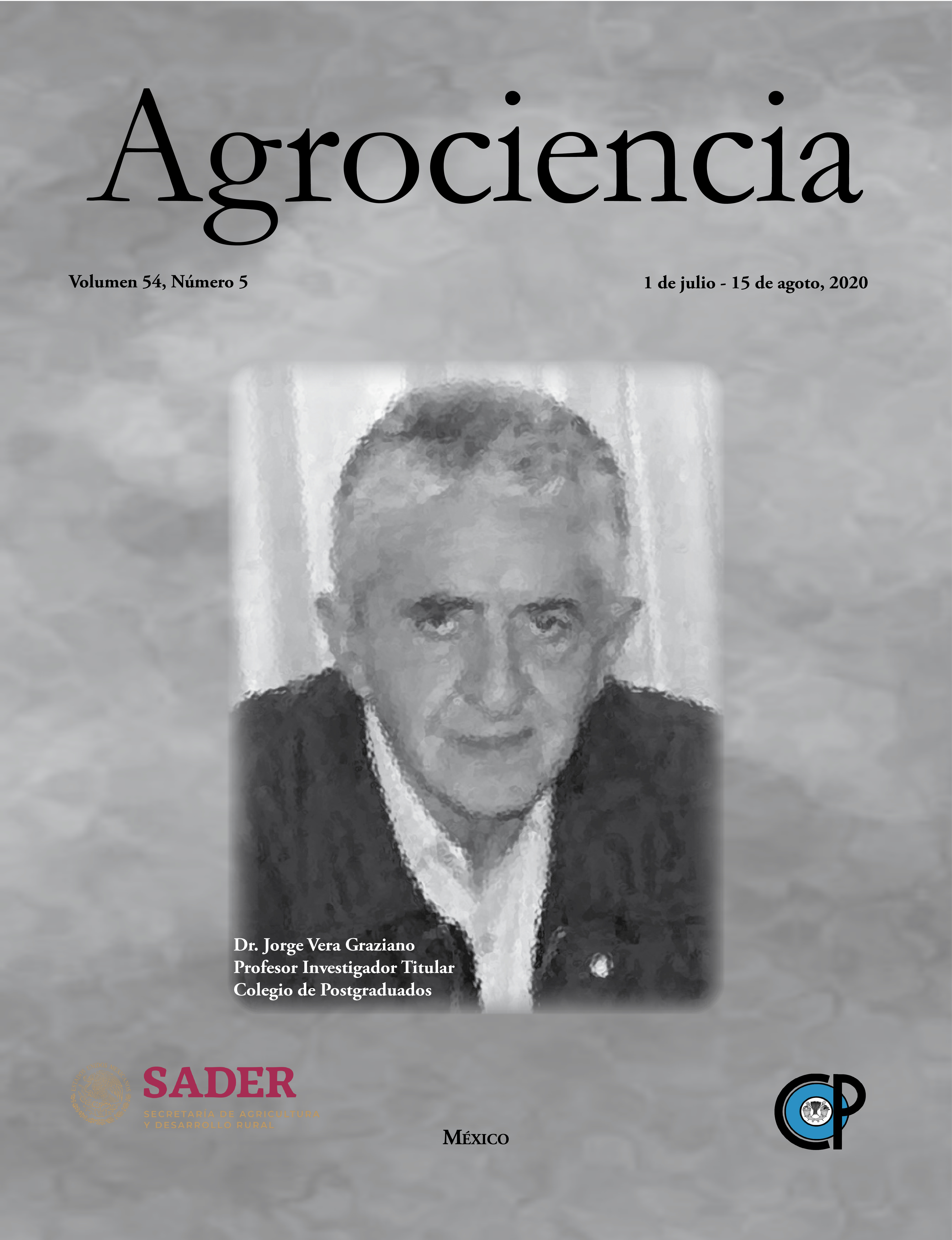EFFECT OF THE PLANT GROWTH PROMOTING RHIZOBACTERIA Azospirillum brasilense SP245 ON THE PHOSPHOLIPASE D IN WHEAT SEEDLINGS
DOI:
https://doi.org/10.47163/agrociencia.v54i5.2121Keywords:
Azospirillum brasilense, wheat, phospholipase D, auxins.Abstract
Azospirillum brasilense is a growth-promoting rhizobacterium in plants, widely used in agriculture. The molecular changes stimulated in the plant by this rhizobacterium during interaction are partially known. One of the primary points of contact of rhizobacteria with the plant cell is the plasma membrane. The aim of this study was to analyze the effect of A. brasilense on the activity of phospholipase D (PLD) on wheat (Triticum aestivum L.) seedling roots. The enzyme activity was determined by the production of phosphatidic acid (PA), which is the product of PLD catalysis. Seedlings inoculated with a concentration of 106 colony forming units per milliliter (CFU mL-1) of the rhizobacterium displayed a reduction in the production of PA in an inoculation period of 5 to 15 min. This reduction revealed a reduction in the activity of PLD. The reduction was maintained for 12 to 48 h, the duration of the study, and it correlated with the reduction in plant growth. The exogenous addition of PA stimulated the growth of the seedlings. The production of PA also decreased when indol-3-acetic acid was added to the seedlings, which suggested a role in the modulation of PLD activity. The results showed that the inoculation of wheat seedlings with A. brasilense Sp245 reduces the activity of PLD.
Additional Files
Published
Versions
- 29-12-2020 (2)
- 14-08-2020 (1)
Issue
Section
License
Agrociencia is published every 45 days, in an English format, and it is edited by the Colegio de Postgraduados. Mexico-Texcoco highway Km. 36.5, Montecillo, Texcoco, Estado de México, CP 56264, Telephone (52) 5959284427. www.colpos.mx. Editor-in-Chief: Dr. Fernando Carlos Gómez Merino. Rights Reserved for Exclusive Use: 04-2021-031913431800-203, e-ISSN: 2521-9766, granted by the National Institute for Author Right.













